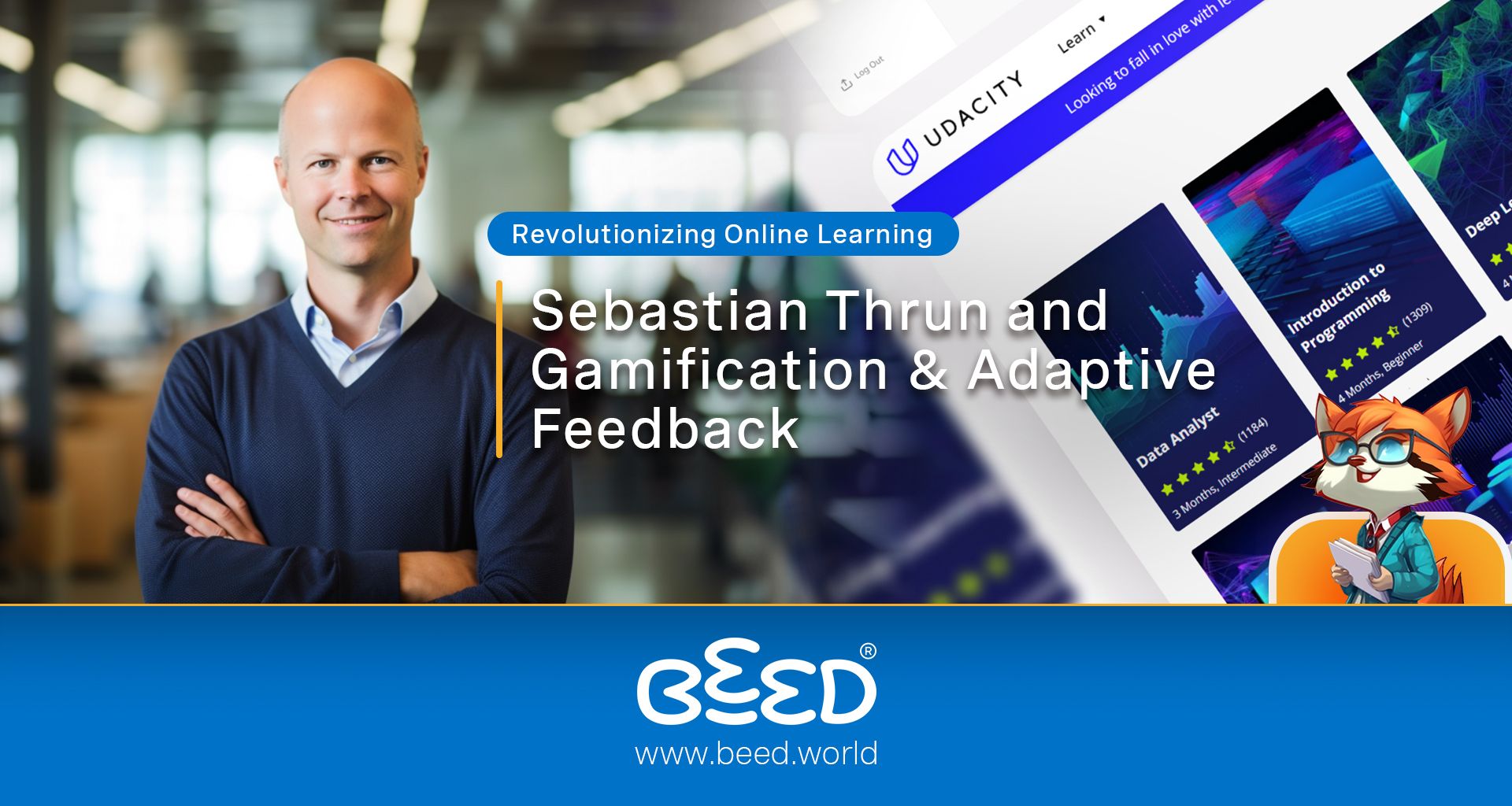Sebastian Thrun and Gamification & Adaptive Feedback: Revolutionizing Online Learning

From Robots to Revolutionizing Education:
Sebastian Thrun, a Stanford professor and entrepreneur, rose to fame with his work on self-driving cars and robots. However, his impact extends far beyond robotics, reaching into the realm of online education through his platform Udacity. There, Thrun champions two key methodologies: gamification and adaptive feedback, transforming the way students learn online.
Gamification: Learning Through Playful Engagement:
Udacity embraces gamification by incorporating game-like elements into its courses. These elements include:
- Points and badges: Rewarding progress and celebrating achievements incentivizes learning and motivates students to persist.
- Leaderboards and challenges: Fostering friendly competition creates a sense of community and drives engagement.
- Interactive simulations and scenarios: Putting learning into context through real-world simulations makes it more relevant and engaging.
Adaptive Feedback: Personalized Learning Paths:
Adaptive feedback empowers Udacity's platform to personalize the learning experience. Here's how:
- Intelligent assessments: Continuously evaluating student understanding adjusts the difficulty level and recommends relevant resources to address individual needs.
- Personalized feedback: Real-time, targeted feedback pinpoints specific areas for improvement and offers individualized guidance.
- Branching learning paths: Based on individual performance, the platform suggests alternative modules or exercises, creating personalized learning journeys.
Impact and Outcomes:
The combination of gamification and adaptive feedback has demonstrably improved learning outcomes:
- Increased completion rates: Students find the learning process more engaging and are more likely to finish courses.
- Improved knowledge retention: The personalized approach and targeted feedback lead to better understanding and longer-lasting knowledge.
- Enhanced motivation and engagement: Gamification elements keep students motivated and actively participate in their learning.
Challenges and Future Directions:
While impactful, challenges persist:
- Ensuring fair competition and addressing potential inequalities: Gamification needs careful design to avoid disadvantageing certain groups.
- Balancing engagement and rigor: Maintaining academic quality while incorporating game elements requires careful consideration.
- Adapting to diverse learning styles: Personalization can be further refined to cater to various learning preferences.
Thrun and Udacity continue to refine their approach, aiming to create even more engaging and effective learning experiences.
Conclusion:
Sebastian Thrun's pioneering work with gamification and adaptive feedback marks a significant shift in online education. By making learning fun, relevant, and personalized, these methodologies pave the way for a more engaging and effective learning experience for all. As technology advances, and Udacity continues to innovate, these tools have the potential to further revolutionize online education, making it accessible, engaging, and transformative for everyone.